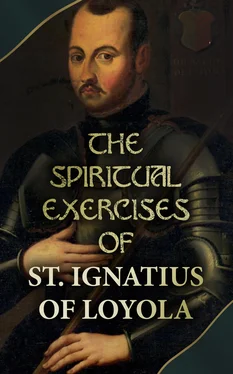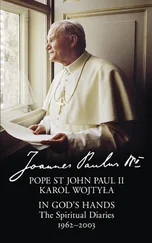This second way is more meritorious than the first.
A venial sin is committed when the same thought comes of sinning mortally and one gives ear to it, making some little delay, or receiving some sensual pleasure, or when there is some negligence in rejecting such thought.
There are two ways of sinning mortally:
First Way. The first is, when one gives consent to the bad thought, to act afterwards as he has consented, or to put it in act if he could.
Second Way. The second way of sinning mortally is when that sin is put in act.
This is a greater sin for three reasons: first, because of the greater time; second, because of the greater intensity; third, because of the greater harm to the two persons.
WORD
One must not swear, either by Creator or creature, if it be not with truth, necessity and reverence.
By necessity I mean, not when any truth whatever is affirmed with oath, but when it is of some importance for the good of the soul, or the body, or for temporal goods.
By reverence I mean when, in naming the Creator and Lord, one acts with consideration, so as to render Him the honor and reverence due.
It is to be noted that, though in an idle oath one sins more when he swears by the Creator than by the creature, it is more difficult to swear in the right way with truth, necessity and reverence by the creature than by the Creator, for the following reasons.
First Reason. The first: When we want to swear by some creature, wanting to name the creature does not make us so attentive or circumspect as to telling the truth, or as to affirming it with necessity, as would wanting to name the Lord and Creator of all things.
Second Reason. The second is that in swearing by the creature it is not so easy to show reverence and respect to the Creator, as in swearing and naming the same Creator and Lord, because wanting to name God our Lord brings with it more respect and reverence than wanting to name the created thing. Therefore swearing by the creature is more allowable to the perfect than to the imperfect, because the perfect, through continued contemplation and enlightenment of intellect, consider, meditate and contemplate more that God our Lord is in every creature, according to His own essence, presence and power, and so in swearing by the creature they are more apt and prepared than the imperfect to show respect and reverence to their Creator and Lord.
Third Reason. The third is that in continually swearing by the creature, idolatry is to be more feared in the imperfect than in the perfect.
One must not speak an idle word. By idle word I mean one which does not benefit either me or another, and is not directed to that intention. Hence words spoken for any useful purpose, or meant to profit one’s own or another’s soul, the body or temporal goods, are never idle, not even if one were to speak of something foreign to one’s state of life, as, for instance, if a religious speaks of wars or articles of trade; but in all that is said there is merit in directing well, and sin in directing badly, or in speaking idly.
Nothing must be said to injure another’s character or to find fault, because if I reveal a mortal sin that is not public, I sin mortally; if a venial sin, venially; and if a defect, I show a defect of my own.
But if the intention is right, in two ways one can speak of the sin or fault of another:
First Way. The first: When the sin is public, as in the case of a public prostitute, and of a sentence given in judgment, or of a public error which is infecting the souls with whom one comes in contact.
Second Way. Second: When the hidden sin is revealed to some person that he may help to raise him who is in sin—supposing, however, that he has some probable conjectures or grounds for thinking that he will be able to help him.
ACT
Taking the Ten Commandments, the Precepts of the Church and the recommendations of Superiors, every act done against any of these three heads is, according to its greater or less nature, a greater or a lesser sin.
By recommendations of Superiors I mean such things as Bulls de Cruzadas and other Indulgences, as for instance for peace, granted under condition of going to Confession and receiving the Blessed Sacrament. For one commits no little sin in being the cause of others acting contrary to such pious exhortations and recommendations of our Superiors, or in doing so oneself.
METHOD FOR MAKING THE GENERAL EXAMEN
It contains in it five Points.
First Point. The first Point is to give thanks to God our Lord for the benefits received.
Second Point. The second, to ask grace to know our sins and cast them out.
Third Point. The third, to ask account of our soul from the hour that we rose up to the present Examen, hour by hour, or period by period: and first as to thoughts, and then as to words, and then as to acts, in the same order as was mentioned in the Particular Examen.
Fourth Point. The fourth, to ask pardon of God our Lord for the faults.
Fifth Point. The fifth, to purpose amendment with His grace.
OUR FATHER.
GENERAL CONFESSION WITH COMMUNION
Table of Contents
Whoever, of his own accord, wants to make a General Confession, will, among many other advantages, find three in making it here.
First. The first: Though whoever goes to Confession every year is not obliged to make a General Confession, by making it there is greater profit and merit, because of the greater actual sorrow for all the sins and wickedness of his whole life.
Second. The second: In the Spiritual Exercises, sins and their malice are understood more intimately, than in the time when one was not so giving himself to interior things. Gaining now more knowledge of and sorrow for them, he will have greater profit and merit than he had before.
Third. The third is: In consequence, having made a better Confession and being better disposed, one finds himself in condition and prepared to receive the Blessed Sacrament: the reception of which is an aid not only not to fall into sin, but also to preserve the increase of grace.
This General Confession will be best made immediately after the Exercises of the First Week.
FIRST EXERCISE
IT IS A MEDITATION WITH THE THREE POWERS ON THE FIRST, THE SECOND AND THE THIRD SIN
Table of Contents
It contains in it, after one Preparatory Prayer and two Preludes, three chief Points and one Colloquy.
Prayer. The Preparatory Prayer is to ask grace of God our Lord that all my intentions, actions and operations may be directed purely to the service and praise of His Divine Majesty.
First Prelude. The First Prelude is a composition, seeing the place.
Here it is to be noted that, in a visible contemplation or meditation—as, for instance, when one contemplates Christ our Lord, Who is visible—the composition will be to see with the sight of the imagination the corporeal place where the thing is found which I want to contemplate. I say the corporeal place, as for instance, a Temple or Mountain where Jesus Christ or Our Lady is found, according to what I want to contemplate. In an invisible contemplation or meditation—as here on the Sins—the composition will be to see with the sight of the imagination and consider that my soul is imprisoned in this corruptible body, and all the compound in this valley, as exiled among brute beasts: I say all the compound of soul and body.
Second Prelude. The second is to ask God our Lord for what I want and desire.
The petition has to be according to the subject matter; that is, if the contemplation is on the Resurrection, one is to ask for joy with Christ in joy; if it is on the Passion, he is to ask for pain, tears and torment with Christ in torment.
Here it will be to ask shame and confusion at myself, seeing how many have been damned for only one mortal sin, and how many times I deserved to be condemned forever for my so many sins.
Читать дальше











